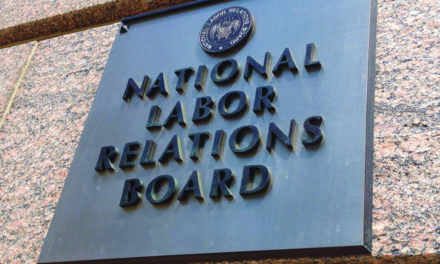In recent years, there has been a concerning trend in certain states across the United States, where Republican lawmakers have been pushing to loosen restrictions on child labor laws. Several state legislatures are weakening—or threatening to weaken—child labor protections. The trend reflects a coordinated multi-industry push to expand employer access to low-wage labor and weaken state child labor laws in ways that contradict federal protections in pursuit of longer-term industry-backed goals to rewrite federal child labor laws and other worker protections for the whole country. Children of families in poverty, and especially Black, brown, and immigrant youth, stand to suffer the most harm from such changes.
### **Preventable Injuries, Dangerous Work**
A 16-year-old died on a Mississippi farm during his shift when he became entangled in a poultry processing machine that he was cleaning. Federal regulators said his death was “preventable” and “dangerous” and that no worker should have been in that situation, “let alone a child.”
Federal investigators found that the facility had failed to follow proper “lockout/tagout” procedures, which safeguard employees from unexpected energization or startup of machines and equipment. OSHA cited Mar-Jac Poultry with 14 “serious” and three “other-than-serious” violations and proposed a $212,646 fine.
His employer said they did not know the boy’s true age and claimed that they would never have put an employee in such a dangerous situation, but the teenager was the second fatality at that facility in two years.
In February 2023, the U.S. Department of Labor (DOL) issued new findings on an ongoing investigation of Packers Sanitation Services, Inc. (PSSI) for illegally employing over 100 children between the ages of 13 and 17 in hazardous occupations at 13 meatpacking facilities owned by JBS, Cargill, Tyson, and others. Children were working overnight shifts, cleaning saws and slaughterhouse equipment. At least three suffered injuries, including burns from caustic cleaning chemicals.
Many of the children are thought to be unaccompanied migrants who were child trafficking victims forced into employment by their traffickers profiting from their labor. Federal child labor laws prohibit anyone under the age of 18 from working at any meat-processing plant.
A separate DOL investigation at Hyundai-Kia supply chain factories found several young Guatemalan migrants, some as young as 12, also working on assembly lines. The investigation found that the auto plants were using staffing firms to recruit low-wage assembly line workers.
### **Use of Child Labor Escalating**
According to DOL, the number of minors employed in violation of child labor laws in fiscal year 2022 increased 37% over FY2021 and 283% over FY2015. But those are just the reported violations. Many go unreported and with many of the violations revealing unaccompanied migrants as victims, it can be assumed that violations are far-reaching and egregious.
### **Child Labor Laws Are Not Arbitrary**
Child labor laws exist for a reason: to protect children from exploitation, ensure their safety, and safeguard their education and overall development. These laws are not arbitrary regulations; they are carefully crafted measures designed to balance the needs of young workers with their rights to a proper education and a childhood free from the burdens of adult responsibilities.
The laws arose from years-long fights to protect children as young as five or six who were being forced to work in mines, mills, and factories. Exploitation during the Industrial Revolution in the 18th and 19th centuries was widespread. Children were forced to work long hours in dangerous conditions for minimal pay. It took years for the public to become outraged enough to pass laws against child labor.
The Fair Labor Standards Act, passed during the New Deal, outlawed “oppressive child labor,” exempting agricultural work from many of its restrictions, which, in the decades since, has left hundreds of thousands of children in the fields. Unfortunately, as illustrated by the stories above, enforcement of FLSA has been uneven. States have always been free to strengthen protections, which some did, but challenges to the federal standards have been rare.
### **Rollback Efforts**
Like many New Deal rollbacks, the Reagan Administration was one of the originators of rollback proposals, but back then, teachers, parents and unions fought back against the idea and won.
It’s no surprise that today’s rollback efforts at the state level are led by Republicans, with bills introduced or passed in at least 30 states since 2021, according to the Economic Policy Institute. States including Arkansas and Iowa have already enacted laws removing some child labor protections and legislatures have introduced legislation to expand youth employment in hazardous occupations and workplaces. In this year alone, 11 states have introduced or taken new action on bills that weakened child labor protections in 2024, according to EPI.
The rollbacks are in part propelled by employers desperate to fill jobs at the lowest possible cost.
Advocates argue that they are offering children valuable opportunities to learn the value of hard work and financial independence. However, this argument fails to acknowledge the stark reality of child labor and its long-lasting negative effects.
### **Rollbacks Are a Bad Idea **
First and foremost, children are not miniature adults. Their physical, cognitive, and emotional development are still ongoing, and subjecting them to the rigors of full-time work can have detrimental consequences. Physically demanding jobs, for instance, can lead to stunted growth, chronic health issues, and even irreversible injuries.
Furthermore, loosening child labor laws undermines the importance of education. Education is not just about acquiring knowledge; it is a fundamental right that empowers children to reach their full potential and become active, informed members of society. Allowing children to work long hours instead of attending school not only deprives them of this right but also perpetuates cycles of poverty and inequality.
Additionally, the argument that child labor promotes responsibility and work ethic is deeply flawed. Responsibility and work ethic are values that can and should be instilled in children through age-appropriate means, such as household chores, volunteer work, and extracurricular activities. Exploiting children for cheap labor under the guise of teaching them these values is both unethical and shortsighted.
Moreover, the push to loosen child labor laws disproportionately affects marginalized communities. Children from low-income families are often the most vulnerable to exploitation, as they may feel pressured to contribute to their family’s income at a young age. A Guatemalan girl employed at a Hyundai-Kia plant in Alabama said that she saw her family struggling to make ends meet and felt compelled to help. She was just 14 years old. Loosening restrictions on child labor only exacerbates this vulnerability, trapping these children in a cycle of poverty with limited opportunities for advancement.
It is also important to consider the broader societal implications of normalizing child labor. Allowing children to enter the workforce at a young age not only devalues their labor but also sets a dangerous precedent that undermines labor rights for all workers. It creates a race to the bottom, where employers can exploit cheap child labor instead of investing in fair wages and safe working conditions for adult workers.
The push to loosen child labor laws by Republican lawmakers in certain states is a misguided and dangerous proposition. It not only threatens the well-being and development of our youngest citizens but also undermines the values of education, equality, and dignity for all. Instead of prioritizing short-term economic gains, we must prioritize the long-term welfare of our children and invest in policies that protect their rights and promote their healthy development. n





